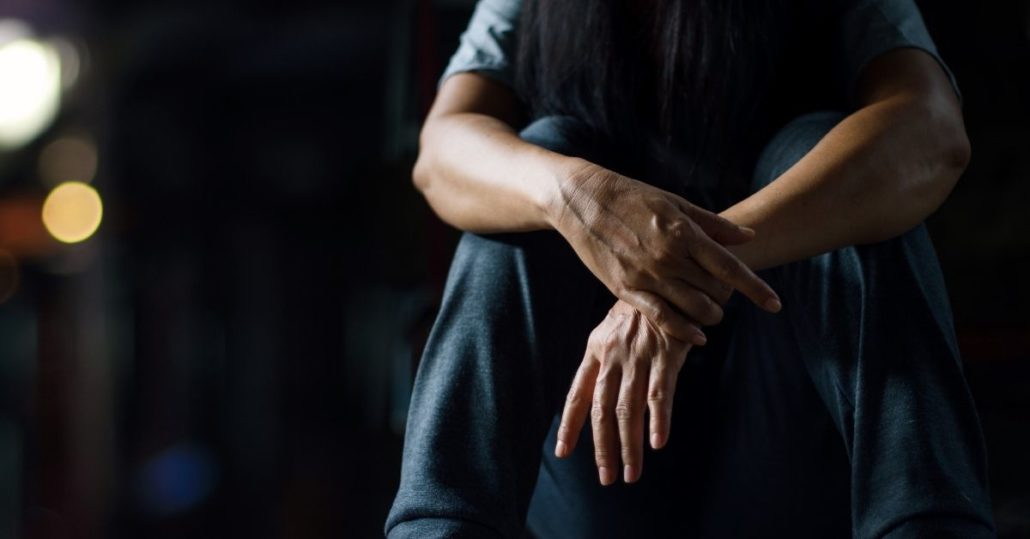What is Valium?
Valium, also known as diazepam, is a prescription drug used for anxiety treatment, muscle spasms, alcohol withdrawal, and as a sedative before surgery or to treat seizures. As a benzodiazepine medication, Valium suppresses excitability in the nervous system. It accomplishes this goal by affecting a brain chemical called gamma-aminobutyric acid (GABA), which binds to GABA receptors and regulates excitement [1].
Unfortunately, long-term use, even with a prescription from a physician, can lead to physical dependence on the drug and uncomfortable and potentially fatal Valium withdrawals when someone decides to quit using. This drug can lead to Valium addiction, especially when higher dosages are used. Moreover, mixing Valium and alcohol is dangerous because they can pose severe risks to the body. Someone with a history of alcoholism may be at risk of addiction to this drug.


Get Your Life Back
Find Hope & Recovery. Get Safe Comfortable Detox, Addiction Rehab & Mental Health Dual Diagnosis High-Quality Care at the We Level Up Treatment Centers Network.
Hotline (877) 378-4154Valium Withdrawal Symptoms
If you have been using Valium for an extended period of time, you’re likely to experience some withdrawal symptoms when you stop or reduce your use. And these symptoms can be severe enough that inpatient medical detox is the safest course of treatment.
Valium withdrawal symptoms can include:
- Increased heart rate and blood pressure
- Sweating
- Muscle spasm
- Tremors
- Abdominal cramps
- Vomiting
- Sensory hypersensitivity
- Headaches
- Irritability
- Rebound anxiety
- Delirium
- Seizures
The severity and duration of Valium withdrawal depend on the length of use, upon the dose, how abruptly the drug is stopped, and personal factors like your health.
Unmanaged Valium withdrawals can be life-threatening. In some cases, users can develop seizures and delirium tremens (DTs), which is a condition commonly associated with alcohol withdrawal that involves shaking, severe confusion, and hallucinations.
Abruptly quitting Valium, rather than slowly tapering from the drug, increases the likelihood of severe Valium withdrawals and certain withdrawal complications. There is no way to predict which of these symptoms you may experience when you stop suddenly. You may experience some or all of them, and because some are fatal, you should not try to stop cold-turkey on your own.
Get Help. Get Better. Get Your Life Back.
Searching for Accredited Drug & Alcohol Rehab Centers Near You? Or Mental Health Support?
Even if you have failed previously, relapsed, or are in a difficult crisis, we stand ready to support you. Our trusted behavioral health specialists will not give up on you. Call us when you feel ready or want someone to speak to about therapy alternatives to change your life. Even if we cannot assist you, we will lead you wherever you can get support. There is no obligation. Call our hotline today.
FREE Addiction Hotline – Call 24/7Valium Withdrawal Timeline
If you or someone you care about has been taking Valium regularly for a period of thirty days or more it’s crucial to seek professional medical treatment before attempting to quit. Failure to seek help could lead to severe complications during Valium withdrawals that require immediate treatment—without medical care, you could die.
Valium withdrawals are a physical reaction to drugs after the body has become accustomed or “used” to a certain dose of Valium. The body’s response to a lessened or reduced dose creates feelings, often including anxiety, paranoia, or other symptoms. According to the National Institute on Health (NIH) [2], Valium works to slow down the brain’s activity, and when a user stops taking it, there can be a rebound effect. If a user were prescribed Valium to treat anxiety or insomnia, the rebound effect could cause these symptoms to return with increased intensity, lasting anywhere from days to weeks.
Imagine you are dependent on Valium (diazepam) and are about to begin detoxing. What will happen? Here are the steps it will take, so be prepared!
Day 1
Whether tapering off the drug with the supervision and recommendation of your psychiatrist or quitting your recreational use, you’re on the right path. Of course, you may feel excited, ashamed, or potentially even depressed when first coming off of any substance. It completely depends on your individual situation and why you detox from Valium. But one thing is sure: you should know what to expect for the next coming days and weeks in the detox process.
Because Valium has a half-life of up to 48 hours, it may take 12-24 hours before you start to feel any Valium Withdrawals symptoms. The exact timing varies on your past Valium usage, as well as your physical condition.
Day 2-4
Once Valium withdrawals start, you will notice it. Especially if you’ve used Valium for several months or abused it, these symptoms will become emotionally and physically noticeable.
Acute Valium withdrawals will usually feel like the flu. You will get nausea, headaches, vomiting, stomach pains, and feel quite sore in general. You may get tremors in your hands or even experience muscle cramps. This is your body reacting to the Valium detox.
Unlike many other Benzodiazepines, Valium works on a longer time scale. According to the FDA, a single dose of Valium can stay in your body for four whole days. Unfortunately, that means that as time goes on, not only do your symptoms worsen, but the Valium in your body to help combat these systems is constantly decreasing.
Day 5-8
After three to four days of acute Valium withdrawals symptoms, you’ll get to general Valium withdrawals. This is because all the Valium has left your body, leaving nothing to protect you from the extreme symptoms.
Not only will you increasingly crave Valium, but your Valium withdrawals symptoms might feel like they are increasingly getting worse. Especially after many days of worsening symptoms, relapsing will feel like an easy solution to escape your existing situations. Therefore, this is crucial to stay under doctor supervision and undergo medically-assisted detox.
If you’ve ever gotten the flu before, imagine what that felt like. Now, imagine those severe symptoms lasting for a week or more and ten times worse. Then you’ve only begun to imagine Valium withdrawals.
In some circumstances, Valium detoxing can lead to very serious and sometimes life-threatening symptoms, especially if you’ve had a strong dependence on Valium for a long time.
It would be advisable to check in to a trusted inpatient rehab facility. Because in some instances, without immediate help from a medical professional, results can be life-threatening.
Severe, dangerous symptoms of valium withdrawals are:
- Hallucinations
- Depersonalization
- Derealization
- Numbness or tingling of arms and legs
- Heightened sensations to light and sound
- Psychosis
- Delirium
- Coma
- Life-threatening convulsions or seizures
After about a week, you will start to feel better physically. But the journey is not over yet.

Day 9-14
For any substance, detoxing has both a psychological and physical component. At this stage, most of the physical effects from detoxing are history. After that, you will become physically stabilized. But there are very real psychological problems you’ll have to deal with.
Usually, after general withdrawal from Valium, your mental mood may return to normal for a period of time. But then you will reach rebound anxiety. Anxiety will increase, and you will have trouble with depression. Mood swings are not uncommon. But most importantly, you might feel “out of sync” with the world. This can be a very tough time.
Day 14 to Year 2
Though most likely, after a couple of weeks you have completed Valium withdrawals, it is possible that you may need several years of therapy. Therapy is a helpful option because, for many, they will have psychological symptoms that will last for years. These include mood swings and other mood issues, irritability, dissatisfaction, variable motivation, difficulty sleeping, and suicidal thoughts. Furthermore, often, the world won’t feel as pleasurable as it was before when you depended on Valium.
Comfortable Facilities & Amenities
High-Quality Addiction & Mental Health Rehabilitation Treatment
Rehab Centers TourRenowned Addiction Centers. Serene Private Facilities. Inpatient rehab programs vary.
Addiction Helpline (877) 378-4154Proven recovery success experience, backed by a Team w/ History of:
15+
Years of Unified Experience
100s
5-Star Reviews Across Our Centers
10K
Recovery Success Stories Across Our Network
- Low Patient to Therapist Ratio
- Onsite Medical Detox Center
- Comprehensive Dual-Diagnosis Treatment
- Complimentary Family & Alumni Programs
- Coaching, Recovery & Personal Development Events
How Long Does Valium Withdrawals Last?
Valium is a benzodiazepine. It used to provide short-term relief for anxiety and has been used to help to support alcoholics from recovery. Though Valium is used to help support initial chemical detox processes, Valium itself has a high dependency rate. This makes withdrawing from Valium, or Valium withdrawals syndrome, just as difficult as alcohol and other substances.
If you become physically dependent on Valium (diazepam) and have decided to stop taking the drug, you can expect to go through the process of Valium withdrawals. You will begin to experience Valium withdrawals and its symptoms a few hours after the effects of your last dose of diazepam have worn off. The intensity of Valium withdrawals symptoms depends on the duration of and amount of the drug dosage and if you are using diazepam outside the prescribed parameters.
It generally takes individuals longer to withdraw from Valium than from other medications. Most individuals continue to experience Valium withdrawals at different stages and levels of severity for several weeks after the last dose of the drug. Because of the nature of Valium, symptoms will seem to get easier and then suddenly spike with the strength you felt at the beginning of the withdrawal symptoms. Acute Valium withdrawals last from three to six days, while other symptoms can persist for weeks or months later.
Causes of Valium Withdrawal
Dependency on Valium is what causes withdrawal. Valium withdrawals result from a specific chemical process known as the benzodiazepine withdrawal syndrome. It doesn’t matter whether you’re a prescription user or a recreational one—though recreational users tend to take higher doses and, therefore, experience worse withdrawal. In both scenarios, your body can grow dependent on Valium, leading to painful withdrawal. It is this dependency—a building block of addiction—that causes withdrawal.
Treatment for Valium Withdrawals
Valium users can increase their chances of maintaining sobriety and reduce the risk of relapse by continuing on with some form of substance abuse treatment after detox. Inpatient rehab centers provide a structured environment in which people can receive an around-the-clock, intensive level of substance treatment. Recovery services can include individual therapy, group counseling, family therapy, drug education classes, holistic treatments, medical care, medication-assisted treatment, and aftercare planning.
World-class, Accredited, 5-Star Reviewed, Effective Addiction & Mental Health Programs. Complete Behavioral Health Inpatient Rehab, Detox plus Co-occuring Disorders Therapy.
CALL (877) 378-4154End the Addiction Pain. End the Emotional Rollercoaster. Get Your Life Back. Start Drug, Alcohol & Dual Diagnosis Mental Health Treatment Now. Get Free No-obligation Guidance by Substance Abuse Specialists Who Understand Addiction & Mental Health Recovery & Know How to Help.
Medications for Valium Withdrawals
Several medications may be used during withdrawal treatment to help alleviate withdrawal symptoms and reduce Valium cravings.
- Romazicon (flumazenil) is typically given intravenously or under the skin and can help reduce acute withdrawal symptoms.
- Anti-convulsants may be used to prevent or treat seizures if the user is not addicted to any other drugs.
- Anti-nausea and anti-diarrhea medications can help to treat stomach and digestion symptoms.
- Aspirin or anti-inflammatory medications can help ease muscle and joint pain.
Withdrawal treatment can include a number of techniques and may vary depending on the length of use, amount used, and the presence of polydrug abuse.
Valium Detox
Valium detox is the process of getting professional medical treatment for Valium addiction in an environment that is safe and controlled. The actual detox process involves allowing the body time for all of the toxins to be fully removed so that there are no longer strong physical withdrawal symptoms.
Detoxing without professional help, specifically medical treatment can be dangerous and is not recommended. If someone is addicted to Valium because of its intense and often dangerous Valium withdrawals symptoms, that person ought to consider inpatient detox. If you or a loved one is struggling with Valium addiction, We Level Up NJ addiction specialists are standing by to help.

Experience Transformative Recovery at the We Level Up Treatment Center.
See our authentic success stories. Get inspired. Get the help you deserve.



Start a New Life
Begin with a free call to an addiction & behavioral health treatment advisor. Learn more about our dual-diagnosis programs. The We Level Up treatment center network delivers various recovery programs at each treatment facility. Call to learn more.
- Personalized Care
- Caring Accountable Staff
- Comfortable Amenities
- Licensed & Accredited
- Renowned w/ 5-Star Reviews
